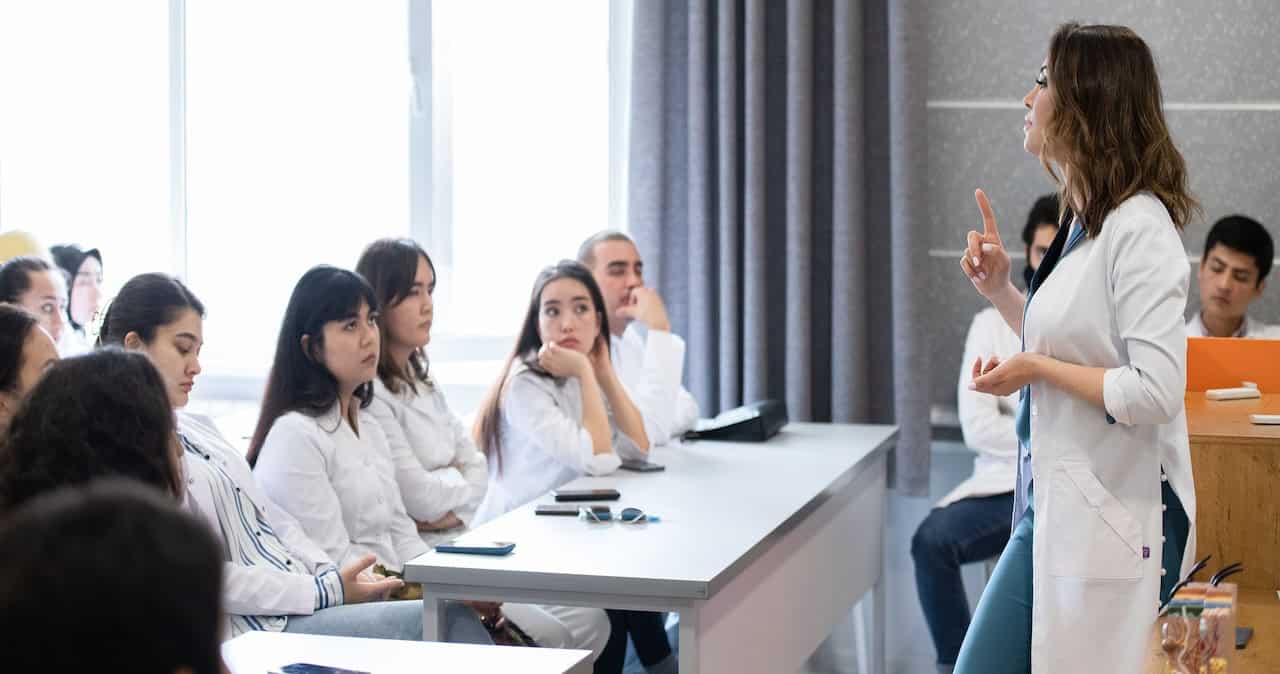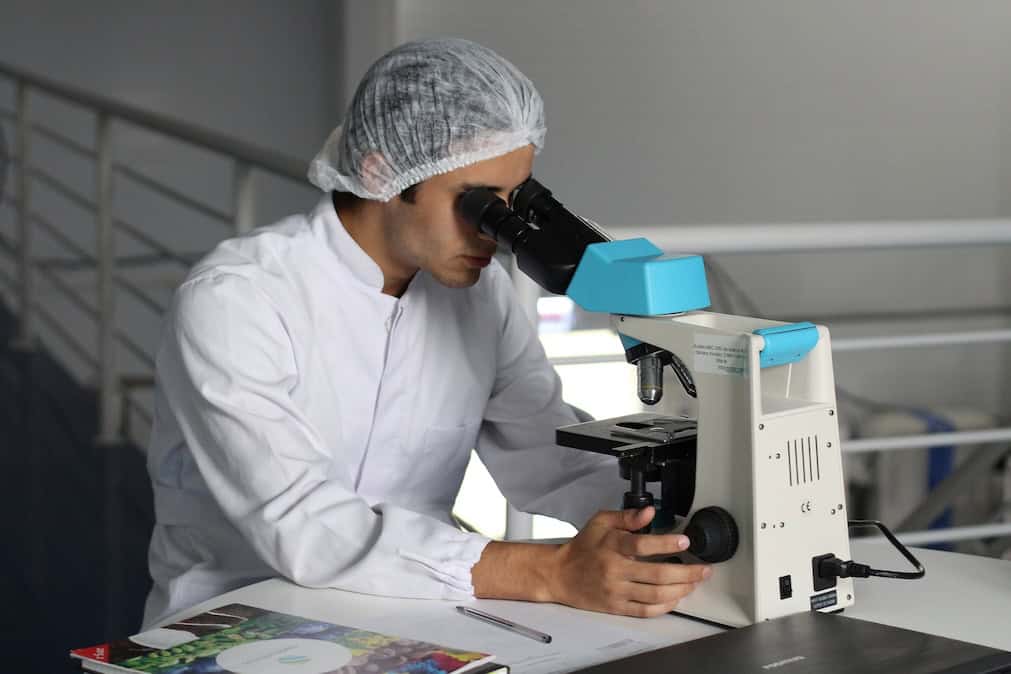How To Approach Career Planning For Becoming A Doctor

Table of Contents
- How Long Is Medical School in the UK vs. Europe?
- What are the Undergraduate and Graduate Medicine Programmes International Students can Study?
- Undergraduate Medicine in the UK and Europe
- Graduate Medicine in the UK and Europe
- Undergraduate and Graduate Medicine in North America
- Why Should You Complete International Clinical Rotations for Career Planning?
- How Do Graduates from European Medicine Programmes Practice Medicine in the UK?
- How Long Does a Junior Doctor Train For?
- How Long is Specialisation for Medicine Graduates?
- A Step-By-Step Timeline for International Medical School
How Long Is Medical School in the UK vs. Europe?
In the United Kingdom (UK), medical schools offer both undergraduate and graduate programmes. Usually, undergraduate programmes are 5–7 years while graduate programmes are around 4 years. UK programs follow a standard structure, with clinical training integrated throughout the course.
For most of Europe, undergraduate programmes take 6-7 years and graduate programmes span take 4-6 years. The European programmes typically incorporate clinical rotations at an early stage, as well as offering additional clinical rotations opportunities. Therefore this provides a more comprehensive education. The key difference between Europe and the UK is that European courses are normally longer in duration and provide a wider educational scope. Comparatively, the UK’s programmes can have a slightly shorter and more compact curriculum structure.

What are the Undergraduate and Graduate Medicine Programmes International Students can Study?
As long as they’re accepted, UK and international students can choose between undergraduate and graduate medicine programmes worldwide. The UK, Europe, and North America are top regions offering these study abroad programmes in English.
For international students, the programme duration is the same: Undergraduate programmes usually last 5-7 years, while graduate programmes typically take 4 years. Overall, each region provides high-quality education and diverse opportunities for aspiring doctors to receive exciting, world-class training and international medical qualifications.
In the UK, Europe, and North America, medical training comprises theoretical studies (called Preclinical modules in the UK and Europe, Basic Sciences in North America) and clinical studies (called Clinical modules in the UK and Europe, and Clinical Sciences in North America).
Undergraduate Medicine in the UK and Europe
In the UK, undergraduate medical programmes generally take between 5–7 years. When it comes to structure, British programmes cover theory and practical components of medical practice. Since UK programmes are very competitive, students wanting to apply are required to have very good science A-levels (usually at least AAA) and also take tests such as the UK Clinical Aptitude Test (UKCAT) and the BioMedical Admissions Test (BMAT). Among these universities, it is noteworthy that there are the world’s top-tier medical schools, namely Oxford and Cambridge.
Altogether, Europe’s range of undergraduate medicine programmes is modern, wide-reaching, and there’s countless medical schools to choose from. Almost all European undergraduate medicine programmes are 6–7 years. Current regions attracting international students with their high-quality offerings include Greece, Bulgaria, Romania, Serbia, Georgia, and Armenia. Admissions criteria varies for each university. Chiefly, all universities require high school diplomas with good science subjects and in some cases, entrance exams or interviews.
Significantly, European undergraduate programmes provide early exposure to clinical practice and a solid foundation in foundational sciences modules. They’re excellent for students who wish to start their medical careers quickly and launch themselves into international practice. The extensive hands-on training and broad EU curriculum prepares students for various medical fields, making these programmes a strong choice for rigorous training and a global career. The qualification earned, Doctor of Medicine (MD), is internationally recognised, allowing graduates to practice medicine worldwide. Studying in Europe can also offer a more affordable education compared to the UK in terms of tuition fees and living costs.
Graduate Medicine in the UK and Europe
In the UK, graduate medicine is typically a 4-year programme. These are designed for students who already hold an undergraduate degree and an accelerated medical training pathway. Entry requirements include a good Bachelor’s Degree in a science-related field such as Biomedical Science. Additionally, high scores on the Graduate Medical School Admissions Test (GAMSAT) and relevant clinical experience are also required.
Concurrently, European graduate medicine programmes generally take 4-6 years. Countries like Germany, Hungary, and the Netherlands offer these programmes in English. Applicants must hold a Bachelor’s Degree in a science-related field, such as Nursing. Lastly, they may need to pass an entrance exam or interview.
Both of these graduate courses offer faster avenues for achieving a medical degree since they include shorter theoretical studies and intensive clinical placements in hospitals, clinics, and specialist centres. Regardless of the region of qualification, doctors who’ve completed graduate training are in high demand all over the world. They’re exceptionally well trained, have studied different healthcare disciplines as students, and can deliver clinical practice with their global qualification. Graduate programmes are a competitive pathway no matter the region of study.
Undergraduate and Graduate Medicine in North America
Another booming region for international medicine is North American medical schools. Both undergraduate and graduate medicine programmes are available, taught in English, and offer a globally-recognised medicine qualification.
Undergraduate Medicine is a 5 or 5.5-Year Programme and Graduate Medicine is a 4-Year Programme. Firstly, Undergraduate Medicine does not have entry exams and programme offers are based on student applications. Secondly, Graduate Medicine candidates are qualified to apply for these programs if they meet the science-related Bachelor’s Degree prerequisite. Additionally, Graduate Programme prerequisites are a written test, the MCAT exam, good academic grades, and relevant healthcare experience. In the Caribbean, a leading education region for North America, medical universities are accredited and their curricula is developed in line with prestigious institutions such as Harvard and Stanford.
Unquestionably, studying medicine in North America proves to be rewarding for countless reasons. Not only are the schools exceptional institutions, but also the programmes are structured to deliver well-rounded practical and theoretical training. They offer the highest qualification available for a Doctor of Medicine (MD). This places medical graduates in the dream position to seek residency positions or healthcare opportunities anywhere in the globe. This is also a plus for people intending to pursue a complete medical education since both the US and Canada have good facilities for international clinical training in hospitals and clinics.

Why Should You Complete International Clinical Rotations for Career Planning?
International clinical rotations offer medical students the opportunity to observe and immerse themselves in healthcare practices in foreign countries. In essence, developing these international skills is an invaluable way to diversify clinical capabilities, real world insights, and ease with patients. Furthermore, acquiring firsthand knowledge of different cultures in terms of medical practice, patient management and health problems is priceless. Learning in different medical settings prepares a student’s mind and flexibility making them a rare asset in every job market.
When it comes to pursuing international clinical rotations, the UK, Europe and North America are leading destinations for dynamic training. In such places, students are likely to be placed in advanced hospitals and clinics with qualified and experienced doctors supervising them. It also helps students understand various potential fields – including exposure to specialisation and technologies – all while creating valuable professional networks. Such a practice not only enhances their clinical activities but also improves their levels of comfort as well as competence in the face of varied health care systems. In effect, gaining a critical perspective gives them a point of difference in the professional field due to the internationalising nature of health care. It is useful for entering new career horizons and generalising their ideas about medicine to provide the very best healthcare whatever the future holds.
How Do Graduates from European Medicine Programmes Practice Medicine in the UK?
Graduates from European medical programmes can practice medicine in the UK, but they must first register with the General Medical Council (GMC). The GMC is the regulatory body that ensures doctors meet the required standards for practicing medicine in the UK.
To register, European graduates typically need to prove their medical qualifications meet UK standards. They may be required to pass an English language proficiency test (IELTS or OET). They’ll also need to sit the Professional and Linguistic Assessments Board (PLAB) test, which assesses clinical knowledge and English language skills. In some cases, if their degree is recognised by the GMC, they may not need to sit the exam.
Once registered, graduates can begin working as junior doctors in NHS hospitals and start their postgraduate training. Registration with the GMC is essential for practicing medicine in the UK. Specifically, it ensures that European graduates maintain the same level of competence as UK-trained doctors, thus making the transition into the UK healthcare system smoother.

How Long Does a Junior Doctor Train For?
The duration of junior doctor training varies across countries:
- In the UK, junior doctors complete two years of Foundation Training, after which they can begin specialty training.
- In the U.S., junior doctors, called residents, train for 3-7 years, depending on the specialty.
- In Canada, residency lasts around 2-7 years, similar to the U.S.
- In Australia, junior doctors undergo a 1-year internship, followed by 1-2 years of residency before choosing a specialty.
How Long is Specialisation for Medicine Graduates?
After finishing general medical training, doctors choose a specialisation. This is extra training in a specific area of medicine. How long this takes depends on the field and country, but here are some common specialisations and how long they take:This extra training helps doctors become experts in their chosen field. After this, they can take on advanced roles and provide specialised care.

A Step-By-Step Timeline for International Medical School
- Complete High School:
Focus on science subjects like Biology, Chemistry, and Physics. Achieve strong grades to meet entry requirements.
- Research Medical Schools:
Explore options in the UK, Europe, or North America. Consider programme length, entry requirements, and location.
- Prepare for Entrance Exams:
Depending on the region, this may include the UKCAT, BMAT, or MCAT. Start preparing early with practice tests and study materials.
- Apply to Medical Schools:
Submit applications, including transcripts, test scores, and personal statements. Many programmes also require interviews.
- Begin Medical School:
Once accepted, start your medical education, which typically lasts 5-7 years for undergraduate programmes or 4 years for graduate programmes.
- Complete Clinical Rotations:
Gain hands-on experience in various medical settings. This phase is crucial for practical learning and skill development.
- Graduate from Medical School:
Receive your medical degree and, in some regions, take required exams to become a licensed doctor.
- Undertake Foundation or Residency Training:
Enter a foundation programme or residency, which varies in length depending on the country and speciality.
- Choose a Specialisation:
Decide on a specialty and undergo additional training, which can take several more years.
- Start Practicing Medicine:
After completing all training and exams, you can begin your career as a fully qualified doctor, ready to make a difference in your chosen field.



















